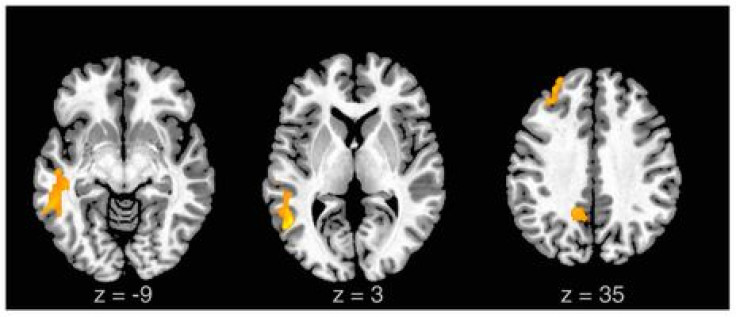Your Brain on Rap: Rappers' Brain Scans Help Explain Creativity

Freestyle rhymes, or making up improvised lyrics, is a treasured skill in hop-hop. Researchers from the National Institute on Deafness and Other Communication Disorders decided to study some rappers' technique - not by seeing a show, but by conducting a functional magnetic resonance imaging (fMRI) scan. Their findings could shed some light on the nature of not just rap, but creativity as a whole.
The researchers assembled 12 rappers, including two of the study authors Michael W. Eagle and Daniel A. Rizik-Baer, and conducted fMRI scans of their brains during two states. The first fMRI scan was taken while the artists were freestyling over a beat supplied by the researchers. Then the researchers supplied the rappers with lyrics to memorize. Researchers conducted a second fMRI scan while the lyricists recited the memorized rhymes as a control.
During improvisation, researchers noticed lower activity in the dersolateral prefrontal cortex and increased activity in the medial prefrontal cortex. Other regions were deactivated, however. "We think what we see is a relaxation of 'executive functions' to allow more natural de-focused attention and uncensored processes to occur that might be the hallmark of creativity," Allen Braun said to the Scientific American.
He noted that this finding may be a bit controversial, because previous studies had found increased activity in the dersolateral prefrontal cortex during creative activities. He said that the difference may lie in the various creative activities that researchers had tested. For example, activities that involve memorization may actually be less creative than researchers had supposed.
The researchers also looked at the way the brain structures interacted with one another. They found that the frontal lobe structures' activity decreased as creative behavior increased. The frontal lobes are associated with creative cognition. That finding may explain why someone performing a creative behavior - like painting, writing, or rapping - may feel like the product appeared on its own.
Michael Eagle, who raps under the name Open Mike Eagle agreed, saying, "That's kind of the nature of that type of improvisation. Even as people who do it, we're not 100% sure of where we're getting improvisation from."
The study was published in Scientific Reports.



























